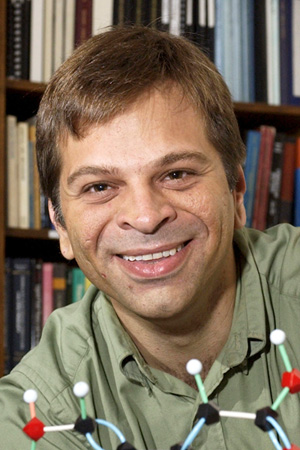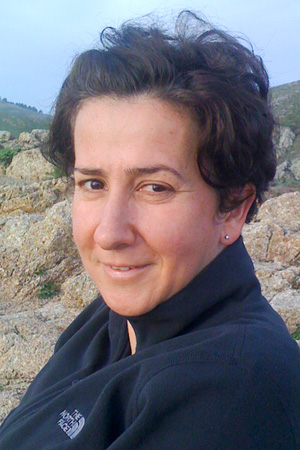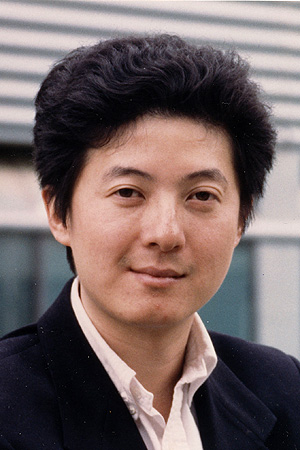Eight Stanford scholars named to American Academy of Arts and Sciences
Eight Stanford scholars are among the 212 members elected this year to the American Academy of Arts and Sciences.
The academy is one of the country's most prestigious honorary societies and is a leading center for independent policy research. Members contribute to academy studies of science and technology policy, global security, social policy and American institutions, the humanities and education.
The newly elected members from Stanford follow:
Anthony Bryk, consulting professor in organizational behavior at the Stanford Graduate School of Business, is the president of the Carnegie Foundation for the Advancement of Teaching. He held the Spencer Chair in Organizational Studies in the School of Education and the Graduate School of Business at the university from 2004 until assuming Carnegie's presidency in September 2008. He came to Stanford from the University of Chicago. His current research and practice interests focus on the organizational redesign of schools and school systems and the integration of technology into schooling to enhance teaching and learning. As president of the Carnegie Foundation, he is especially focused on reengineering education research and development infrastructure and linking it to an emerging science of performance improvement in education.
Penelope Eckert, a professor of linguistics and, by courtesy, of anthropology, studies the social meaning of linguistic variation, using in-depth ethnographic fieldwork to support sociolinguistic research. Her work focuses on the relation between variation, linguistic style, social identity and social practice. She has an interest in adolescents and pre-adolescents, "the movers and shakers in linguistic change," and language and gender, which she calls "the big misunderstood in studies of sociolinguistic variation," despite several groundbreaking decades of intellectual developments in gender and sexuality. Her research also has focused on the linguistic transition from Gascon to French in the French Pyrenees. She holds a PhD in linguistics from Columbia University and a BA from Oberlin College. She is married to Stanford linguist Ivan Sag, who was elected to the academy in 2007.
Russell D. Fernald is the Benjamin Scott Crocker Professor of Human Biology and professor of biology. He seeks to understand how social interactions among individuals produce specific changes in the brain. His research group uses the African cichlid fish as their subject. Male cichlids change social and reproductive state based on their social environment and many physiological changes result from changes in social status. His group's research is focused on understanding the mechanisms through which social change is transduced into cellular and molecular changes. They use techniques ranging from behavioral observation to molecular probes to discover how the brain is influenced by social change. Fernald earned his BS at Swarthmore College and his PhD at the University of Pennsylvania. Prior to joining Stanford, he was a professor of biology at the University of Oregon.
Andrei Linde, professor of physics, holds the Harald Trap Friis Professorship. He is one of the authors of the inflationary universe scenario, which is gradually becoming the standard paradigm of modern cosmology, replacing the previous versions of the Big Bang theory. His current research involves various problems related to the theory of elementary particles and to cosmology, including phase transitions in the early universe, global structure of the universe, theory of tunneling in unusual environments, quantum theory of black holes and quantum cosmology. Linde earned his BS at Moscow State University and his PhD from the Lebedev Physical Institute in Moscow. Prior to arriving at Stanford in 1990, he was a professor at the Lebedev Physical Institute and a researcher in the Theory Division at CERN, the European Organization for Nuclear Research near Geneva, Switzerland.
Todd J. Martinez is the David Mulvane Ehrsam and Edward Curtis Franklin Professor in Chemistry at Stanford and a professor of photon science at SLAC National Accelerator Laboratory. His research interests are in physical and theoretical chemistry. His research group's areas of focus include excited-state dynamics in chemistry – bridging the gap between traditional molecular dynamics (What are the atoms doing?) and quantum chemistry (What are the electrons doing?). His researchers also work in mechanochemistry, seeking to understand how mechanical stresses can affect the chemical properties in materials, particularly mechanosensitive polymers whose properties can respond to physical stress. Previous to joining Stanford in 2009, he was a professor of chemistry at the University of Illinois at Urbana-Champaign. He earned his BS at Calvin College and his PhD from the University of California-Los Angeles.
Monika Piazzesi is the Joan Kenney Professor of Economics in the Department of Economics. She researches financial economics, macroeconomics and applied time series, and has developed influential models of the yield curve for bonds. She is a research affiliate at the National Bureau of Economic Research and the Center for Economic and Policy Research. Piazzesi is also a coeditor for the Journal of Political Economy and an affiliated professor at the Ludwig-Maximilians-Universität München. Before arriving at Stanford in 2008, she was a monetary advisor to the Federal Reserve Bank of Minneapolis and taught at the University of Chicago's Graduate School of Business and at UCLA's Anderson School of Management. She holds a diploma in economics from the University of Bonn in Germany and a PhD in economics from Stanford.
Brian Wandell is the Isaac and Madeline Stein Family Professor in the Department of Psychology and the director of the Center for Cognitive and Neurobiological Imaging. His research centers on how we see, and spans topics from visual disorders and reading development in children to digital imaging devices and algorithms. His work includes studies of the organization of the visual field maps in the human brain, color and motion processing within these maps, and the potential for reorganization following injury or developmental disorders. Wandell joined the Stanford psychology faculty in 1979 and is a member, by courtesy, of the electrical engineering, ophthalmology and radiology departments. Wandell holds a bachelor's degree in mathematics and psychology from the University of Michigan and a PhD in social science from UC-Irvine. Wandell was elected to the National Academy of Sciences in 2003.
Shoucheng Zhang is the J. G. Jackson and C. J. Wood Professor of Physics. A condensed matter theorist at the Stanford Institute for Materials and Energy Science, a joint institute of Stanford and SLAC National Accelerator Laboratory, his research interests include studies of the quantum spin Hall effect, topological insulators and superconductors, quantum spintronics, superfluidity and magnetism. Prior to coming to Stanford, he was a researcher at the IBM Almaden Research Center in San Jose. He earned his diploma in physics from the Free University of Berlin and his PhD in physics at the State University of New York at Stony Brook.
Media Contact









Share This Story